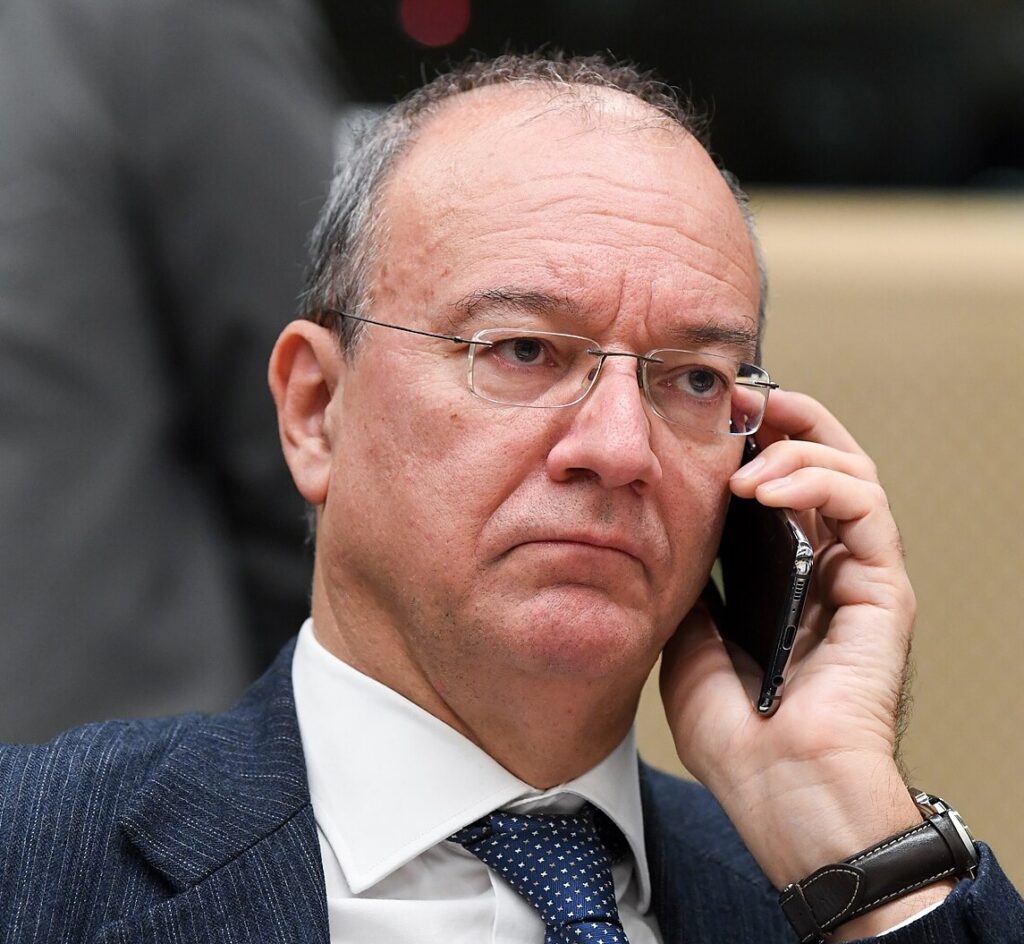
Il Guardiano del Patrimonio, “The Guardian of Heritage,” was the grandiose title of a television series promoting President Xi Jinping’s cultural philosophy as it was broadcast last month across more than 30 Italian media outlets — one of the more ambitious and expansive examples of how China enlists apparent cultural cooperation to advance its political narratives and foreign policy objectives.
The grand launch ceremony in Rome last month was attended by key Chinese officials including Shen Haixiong (慎海雄), deputy head of China’s Propaganda Department and president of CMG, and Chinese Ambassador to Italy Jia Guide (贾桂德). Top Italian attendees included Giuseppe Valditara, the minister of education and merit in Giorgia Meloni’s current administration, former Deputy Prime Minister and Culture Minister Francesco Rutelli, and Italian Football Federation President Gabriele Gravina.
The festivities were a sufficiently grand display of Chinese foreign policy that they earned a segment on the nightly official newscast on China Central Television, “Xinwen Lianbo” (新闻联播). The series, which began airing on Italian networks on June 26, was timed to commemorate the 55th anniversary of China-Italy diplomatic relations. Networks airing the production included Alma TV, Dona TV, Tourism TV, and Lazio TV, as well as the website of the Milan Financial Daily.
Under what specific arrangements did Italian media agree to broadcast this CMG-produced series? CMP has reached out to several, but has received no responses to date.
Produced entirely by China Media Group (中国中央广播电视总台), the state media conglomerate formed in 2018 through the merger of key media groups including China Central Television, the program showcases what it calls Xi’s “profound thinking” on cultural development and his “deep affection” for preserving cultural heritage. The series visits locations where Xi has worked or inspected, including the ancient capital city of Hangzhou in China’s eastern Zhejiang province, and Dunhuang in Gansu, an outpost on the edge of the once Silk Road that is home to a network of grottoes adorned with Buddhist statuary and frescoes.

While the program, originally produced by CCTV in 2023, ostensibly focusses on China’s cultural legacies, it clearly promotes Xi Jinping as an inspirational political figure leading an inspirational political party into an era of greatness. In line with China’s most recent remodeling of political discourse since the last CCP congress in October 2022, the country’s ancient civilization is portrayed as the root of the ruling party’s power and legitimacy. Shen Haixiong (慎海雄), deputy head of China’s Propaganda Department and president of China Media Group, said at the launch in Rome that Xi’s “broad-minded embrace” stems from his “confidence and cherishing of cultural roots.”
Apparently swallowing the hook, Valditara responded — awkwardly, it must be said, for an EU education minister touting a production overseen by the CCP’s Central Propaganda Department — that Italian audiences were “eagerly anticipating opportunities to understand more deeply the profound foundation of Chinese culture and contemporary China’s vigorous development.” He described Chinese and Italian civilizations, according to coverage in China’s state media, as “brilliant galaxies that complement each other” (意中文明如璀璨星河,交相辉映).
The festivities in Rome, and the program airing across Italian television, are not really about culture at all. They are efforts to push state-led narratives of political legitimacy and civilizational grandeur through geopolitical posturing dressed up as cultural exchange. Officials in Europe and elsewhere should engage with China — but they should know the difference between culture and state-sponsored theater.




















